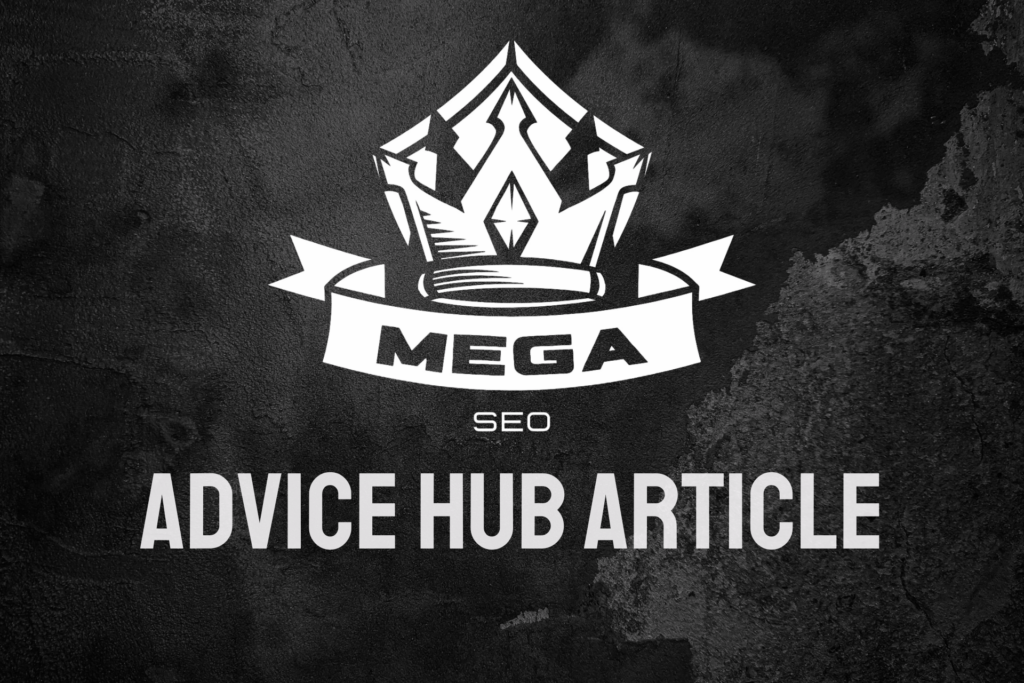Long-tail keywords play a crucial role in modern SEO strategies, offering businesses a pathway to target specific audience segments and capture valuable organic traffic.
Our team at Mega SEO explore the intricacies of long-tail keyword optimisation, providing you with actionable insights to enhance your on-page SEO efforts and drive targeted traffic to your website….
What Are Long-Tail Keywords?
Long-tail keywords are longer, more specific search phrases typically consisting of three or more words.
Unlike short-tail keywords, which are broad and highly competitive, long-tail keywords cater to niche audiences with specific search intents. These phrases often have lower search volumes but higher conversion potential due to their specificity.
For example, instead of targeting the broad term “coffee,” a long-tail keyword might be “organic fair trade coffee beans UK.” This specificity allows businesses to target users who are further along in the buying process and more likely to convert.
Why Should You Focus on Long-Tail Keywords?
Optimising for long-tail keywords offers several advantages:
1. Lower Competition: Long-tail keywords face less competition, making it easier to rank higher in search engine results pages (SERPs).
2. Higher Conversion Rates: Users searching with long-tail keywords often have a clearer intent, leading to better conversion rates.
3. Improved Relevance: Long-tail keywords allow you to create more targeted content that directly addresses user needs.
4. Cost-Effective PPC Campaigns: In paid search, long-tail keywords typically have lower cost-per-click rates due to reduced competition.
5. Voice Search Optimisation: Long-tail keywords align well with natural language patterns used in voice searches.
By incorporating long-tail keywords into your SEO strategy, you can tap into these benefits and enhance your overall digital marketing performance.
How Do You Identify Valuable Long-Tail Keywords?
Identifying effective long-tail keywords requires a strategic approach. Here are some methods to uncover valuable long-tail opportunities:
Leverage Keyword Research Tools
Start by using comprehensive keyword research tools to identify potential long-tail variations. Tools like SEMrush, Ahrefs, or Google’s Keyword Planner can provide insights into search volumes, competition levels, and related phrases.
When using these tools, focus on phrases with lower search volumes but higher relevance to your business. Look for keywords with clear intent that align with your products or services.
Analyse Search Console Data
Google Search Console offers valuable insights into the queries that already bring users to your site. Review this data to identify long-tail variations you might not have considered. Pay attention to phrases with high click-through rates but lower positions as these represent opportunities for optimisation.
Explore “People Also Ask” and Related Searches
Google’s “People Also Ask” feature and related searches at the bottom of SERPs can be goldmines for long-tail keyword ideas. These sections reveal questions and phrases real users are searching for, providing direct insight into user intent and potential content topics.
Monitor Competitor Keywords
Analyzing your competitors’ keyword strategies can uncover valuable long-tail opportunities. Tools like SEMrush allow you to see which keywords your competitors are ranking for, potentially revealing niche areas you’ve overlooked.
Utilise Customer Feedback and FAQs
Your customer service team and FAQ sections are excellent sources of long-tail keyword ideas. The questions customers frequently ask often translate directly into valuable search phrases. Review customer inquiries, support tickets, and common questions to identify potential long-tail keywords.
How Can You Effectively Optimise for Long-Tail Keywords?
Once you’ve identified valuable long-tail keywords, the next step is to optimise your content and website effectively. Here’s how:
Create Dedicated Content
Develop high-quality, in-depth content that specifically addresses the intent behind your chosen long-tail keywords. This might involve creating detailed blog posts, product pages, or service descriptions that thoroughly cover the topic.
For instance, if you’re targeting “organic fair trade coffee beans UK,” create a comprehensive guide that discusses the benefits of organic and fair trade coffee, sourcing practices, and why UK consumers should consider these options.
Optimise On-Page Elements
Incorporate your long-tail keywords naturally into key on-page elements:
- Title Tags: Include the long-tail keyword near the beginning of your title tag.
- Meta Descriptions: Use the keyword in your meta description to improve click-through rates from SERPs.
- Headers: Utilise the keyword in H1, H2, or H3 tags where appropriate.
- URL Structure: Include the keyword in your URL, keeping it concise and readable.
- Image Alt Text: Describe images using the long-tail keyword where relevant.
Remember, while it’s important to include your target keyword, avoid over-optimisation. Focus on creating natural, reader-friendly content that provides value to your audience.
Enhance User Experience
Ensure your content is easily digestible and provides a positive user experience. This includes:
- Using clear, scannable formatting with short paragraphs and bullet points
- Incorporating relevant images, videos, or infographics
- Ensuring fast page load times and mobile responsiveness
- Providing internal links to related content on your site
A positive user experience not only helps with SEO but also increases the likelihood of conversions and return visits.
Build Topic Clusters
Create a network of interlinked content around your main long-tail keyword themes. This approach, known as topic clustering, involves developing a pillar page that broadly covers a main topic, with several related pages diving deeper into specific aspects.
For example, your pillar page might focus on “organic coffee,” with cluster content addressing long-tail variations like “organic fair trade coffee beans UK,” “best organic coffee roasters in London,” and “health benefits of organic coffee.”
Leverage Schema Markup
Implement relevant schema markup to help search engines better understand your content. This structured data can improve how your pages appear in SERPs, potentially increasing click-through rates.
For instance, if you’re creating a recipe page for “homemade organic coffee face scrub,” using recipe schema can display rich snippets in search results, making your content more appealing to users.
How Do You Track and Measure Long-Tail Keyword Performance?
Monitoring the performance of your long-tail keyword optimisation efforts is crucial for refining your strategy. Here are key metrics and methods to track:
1. Organic Traffic: Use Google Analytics to monitor increases in organic traffic to pages optimised for long-tail keywords.
2. Keyword Rankings: Track your positions for target long-tail keywords using tools like SEMrush or Ahrefs.
3. Conversion Rates: Measure how well pages optimised for long-tail keywords convert visitors into customers or leads.
4. Bounce Rate and Time on Page: Analyse these metrics to gauge the relevance and engagement of your content.
5. Click-Through Rates: Monitor CTRs in Google Search Console to assess how compelling your titles and meta descriptions are for long-tail searches.
Regularly review these metrics and adjust your strategy accordingly. Remember, SEO is an ongoing process, and continuous refinement is key to long-term success.
Elevate Your SEO Strategy with Mega SEO
Optimising for long-tail keywords is a powerful way to enhance your SEO performance and drive targeted traffic to your website. By following the strategies outlined in this guide, you can develop a robust long-tail keyword optimisation approach that yields tangible results.
At Mega SEO, we specialise in crafting bespoke SEO strategies that leverage the power of long-tail keywords to boost your online visibility and drive conversions. Our team of SEOs in Wigan and all over the country can help you identify valuable long-tail opportunities, create compelling content, and implement effective SEO.
Don’t let valuable long-tail opportunities slip through your fingers. Reach out to Mega SEO to start optimising your SEO strategy today.



